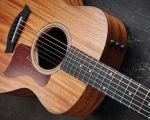How to Choose a Musical Instrument for a Child: A Comprehensive Guide
- 1. The Importance of Music for Children
- 2. Key Factors to Consider When Choosing an Instrument
- 3. Best Musical Instruments for Children
- 4. Involving Your Child in the Decision-Making Process
- 5. Real-Life Experiences and Tips for Parents
1. The Importance of Music for Children
Choosing a musical instrument for your child is a decision that can have a profound impact on their development. Music is an essential part of childhood that aids in cognitive, emotional, and social growth. It helps children develop their concentration, memory, and creativity, while also enhancing their motor skills. But with so many instruments to choose from, how can you pick the one that’s right for your child?
When I first started thinking about music for my own children, I knew that choosing the right instrument was crucial not just for their education but for their enjoyment and development. Whether it's the joy of creating music or the ability to focus, a well-chosen instrument can open up a world of possibilities for your child.
2. Key Factors to Consider When Choosing an Instrument
When selecting a musical instrument for your child, there are several factors to keep in mind. Here are the most important things to consider when making your choice:
2.1. Age and Physical Readiness
The first consideration should be your child’s age and physical readiness. Younger children, typically under the age of 5, may not have the necessary fine motor skills for complex instruments like the violin or trumpet. However, simpler instruments like the xylophone or keyboard may be more accessible at this stage.
2.2. Musical Interests and Preferences
It’s important to also consider your child’s musical preferences. If they are particularly drawn to a specific type of music, like classical or rock, it might make sense to select an instrument that aligns with those interests. Personally, my son was always fascinated by the guitar, which led to us choosing the instrument that suited his passion. When a child is excited about an instrument, they are more likely to stick with it and practice consistently.
2.3. Sound and Tone
Some children may be more drawn to the sound of certain instruments. For instance, some may love the melodic sounds of the piano, while others may find the boldness of the trumpet exciting. It’s essential to let your child explore different sounds before making a decision. Taking them to a music store or allowing them to listen to recordings can help them discover which instrument resonates with them the most.
2.4. Budget and Cost of Instrument
Budget is another crucial factor. Some instruments, like stringed instruments and wind instruments, can be more expensive both to purchase and maintain. If you're not sure whether your child will stick with their musical studies, consider renting an instrument first. This way, you can assess whether they enjoy playing the instrument before committing to a purchase.
3. Best Musical Instruments for Children
Once you’ve considered the factors above, it’s time to think about which instruments are best suited for your child. Here are some of the best options based on age, skill level, and musical interest:
3.1. Piano
The piano is often considered one of the best instruments for children to start with. It offers a solid foundation for learning music theory and helps develop a strong sense of rhythm and melody. My daughter started with the piano when she was 6, and it significantly improved her overall musicality. Plus, it’s an instrument that she can continue to play for years to come, whether for casual enjoyment or more serious study.
3.2. Violin
The violin is another great instrument for children, especially those who have good hand-eye coordination. It’s a bit more challenging to start with than some other instruments, but with consistent practice, children can develop a strong appreciation for music. The violin is also very versatile, fitting into many musical genres.
3.3. Guitar
If your child loves popular music, the guitar might be the perfect choice. It’s relatively easy to learn basic chords and play simple songs. Plus, the guitar can be an excellent introduction to understanding different musical genres, from rock to folk to classical. My son’s interest in rock music led him to the guitar, and he’s been playing it for years now.
3.4. Recorder
The recorder is often recommended for younger children due to its simplicity and affordability. It’s a great introduction to woodwind instruments and provides a foundation for learning more complex instruments like the flute or clarinet later on. Many schools introduce the recorder as part of their music curriculum, which is why it’s a great option for beginners.
4. Involving Your Child in the Decision-Making Process
One of the best things you can do when choosing an instrument is to involve your child in the decision-making process. After all, they will be the one learning and practicing, so it’s essential that they feel excited about their choice. Allowing them to try out different instruments and expressing their preferences can help ensure that they are motivated to keep practicing.
When my son was deciding between the piano and guitar, we spent time at a local music store where he could play both. It made all the difference when he was able to hold and play the instruments, as he was able to feel the difference in sound and comfort. In the end, he chose the guitar, and it’s been an excellent fit for him ever since.
5. Real-Life Experiences and Tips for Parents
Choosing a musical instrument for a child isn’t always an easy decision. It requires patience, experimentation, and a willingness to try new things. Here are a few real-life experiences and tips that I have learned throughout this journey:
5.1. Patience is Key
Learning an instrument takes time, and it’s important to be patient with your child’s progress. Don’t expect them to become a prodigy overnight. Celebrate their small victories and encourage them to continue practicing, even when it feels like they aren’t progressing as quickly as they’d like.
5.2. Provide Consistent Support
Consistency is key to learning any musical instrument. Make sure to set aside regular practice time and provide support and encouragement. It’s helpful to be involved in their musical journey, whether it’s attending recitals or simply listening to their practice sessions at home.
For all your musical instrument needs, consider visiting Beat Trigger, where you can find a wide range of musical instruments that are perfect for children of all ages. Whether you're looking for a beginner's piano or a guitar to spark your child's passion for music, Beat Trigger has what you need to help your child embark on their musical journey.








